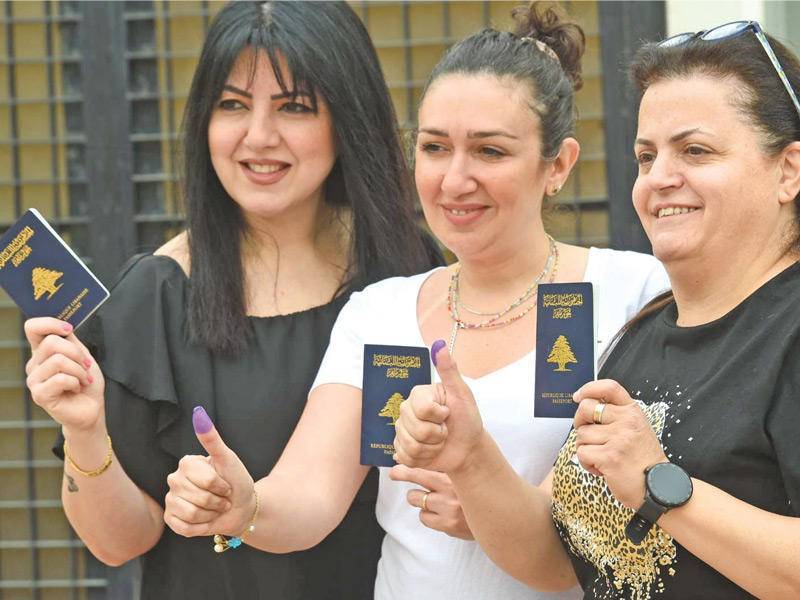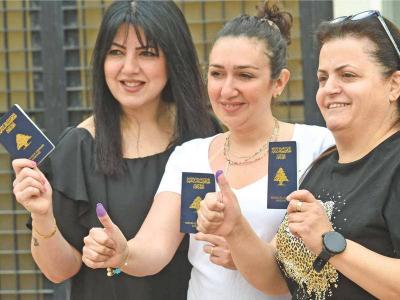Although it did not exceed 60%, the voter turnout of Lebanese citizens in Arab countries during the parliamentary elections indicates a positive engagement with this electoral process. Attention is now directed towards the turnout of expatriates in Europe, the United States, Canada, and Australia, amid expectations of high participation rates there as well.
One week remains until Lebanon's electoral event, which various parties consider crucial. Efforts continue to encourage the Sunni community to vote in large numbers to prevent "Hezbollah" from gaining a parliamentary majority, a call made by Mufti Abdul-Latif Deryan during his Eid al-Fitr sermon.
This was accompanied by numerous leaks about pressures being exerted on the leader of the "Future Movement," Saad Hariri, to urge his supporters to participate robustly in the elections in favor of candidates representing the former "March 14 Forces." It is still uncertain whether Hariri, who recalled the events of May 7, 2008, when "Hezbollah" invaded Beirut and attempted to storm areas in the mountains, referring to it as a "dark day," will take a similar stance. Information suggests that he will travel to the United States next week to attend a family event that will include meetings with American officials.
At the same time, pressures continue until the last moment on prominent candidates on the "Lebanese Forces" list in western Bekaa; candidates Mohammad Qadura and Khaled Al-Askar announced their withdrawal from the race, leaving the "Forces" alone.
This pressure came from within the same political house and alliance, unlike the pressures faced by the "Forces" in northern Bekaa, exerted by "Hezbollah" on Shiite candidates opposing it.
Among the exceptional electoral positions is the stance of the head of the Progressive Socialist Party, Walid Jumblatt, who outlined the political framework for the upcoming phase and paved the way for his son, Taymour, to assume all leadership roles in the Druze community by retiring from political work entirely; this could also pave the way for new approaches to various issues.
The elections represent a fundamental pivot for transitioning to a new political phase, some of which pertains to forming the upcoming government and how its balances will settle, while others relate to preparing for the next presidential elections.
In a "preemptive" early step, head of the Free Patriotic Movement, Gibran Bassil, filed lawsuits against the "Forces" and the "Kataeb" party for exceeding the imposed ceiling on election spending. Some believe that Bassil's action could be a preemptive measure, paving the way for further steps to present numerous electoral appeals if the results do not align with his calculations and if he loses the largest Christian bloc. This may push him to refuse to recognize the results and submit appeals to the Constitutional Council, thereby obstructing parliamentary work and negatively impacting government formation. The President, Michel Aoun, might refrain from calling for binding parliamentary consultations to assign a prime minister pending the outcomes of these appeals, indicating that the Lebanese crisis could intensify unless external factors provide a foundation for a settlement to prevent further collapse of the country.
At the same time, diplomatic sources indicate that the French have begun working on a political framework to address all issues in the post-election phase.




